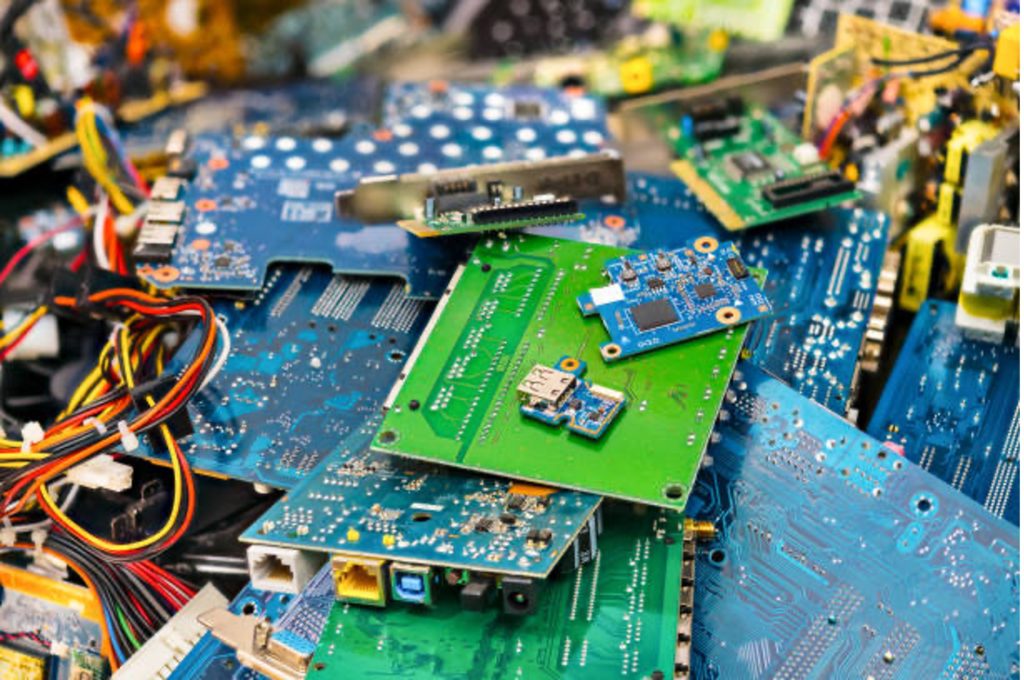Let’s talk about e-waste.
Written by: Alejandro Pineda Catalan

AP
Technology has seen massive leaps and bounds, affecting sectors outside its own. These sectors include media, climate change, and healthcare. To look at how technology has created environmental change, we must understand what negative impacts big tech companies have created. The more anything grows, it is bound to create adverse outcomes, no matter the unlimited benefits it can create. Most technology lacks sustainable materials; these materials often come from minerals that have severe consequences when obtaining them.
Mining is essential in collecting the minerals required to make most devices we use today, such as smartphones, speakers, laptops, and other standard devices. Mining can result in deforestation and water pollution and release carbon dioxide, carbon monoxide, and other toxic gasses into the air. The machinery, another result of “technological improvements,” has not evolved to where it can use green energy but still operates off fossil fuels.

Ladislav Kubeš/Istock
These types of machinery play a significant role in greenhouse gas emissions. The most hindering results pour onto the people within these mining camps, considered modern-day enslaved people. These people who live in undeveloped countries suffer from back-breaking manual labor and work conditions that leave many with severe health conditions, many resulting in death.
The cycle of producing these devices continues; materials are shipped and produced in warehouses requiring massive amounts of energy. Shipping again contributes to our carbon footprint and energy usage for those massive manufacturers who take these minerals and materials to create the complex devices we all know and love. Once these devices are used and useless to the customer, they become waste. Not any ordinary waste, but “E-Waste,” which totals 62.5 billion dollars worth of electronics.
Electronic waste results in even more environmental pollution and contamination that leak into waterways. Landfill sites can result in more than land waste. While the waste can sit and take up space, it is also often burned, emitting methane and other carbon emissions. The location for all this waste also returns to undeveloped countries. “Out of sight, out of mind” can be the slogan for most prominent tech companies, ensuring the masses do not see the negative handoffs to keep producing and making billions each year.
Electrical waste is at a historical high as big tech companies can produce their products overseas at an inexpensive cost compared to what it would cost within the states or any developed country. Outsourcing in the technology sector has pronouncedly impacted a company’s profitability. It also impacts where specific jobs are and how those jobs can affect the people and environment around them. Undeveloped countries become victims of outsourcing and create economic and environmental issues.
Unofficially recycled electronics expose individuals to dangerous working conditions and adverse health concerns. Being so cost-efficient to outsource, it has become a norm for tech companies to worry less about what it takes to produce these said products. Their primary focus is how to keep costs low and market their products to the public while dismissing their obstructive practices.

Alejandro Pineda/Earth Shiners
Where there are problems, there are also opportunities for the solution of these problems. Recycling is still a vital action humanity must implement, only partially waste certain electronics. Once recycled, the materials that hold expensive minerals within them can reduce the need for mining camps that endanger those who work within them and live around these locations. We also must make it aware that most electrical products are not sustainable nor as disposable as many think. The public should be aware of how harmful our everyday devices are to manufacture.
Having more information on the process and afterlife of the devices we take for granted may allow us to become mindful of how much hard work it takes to obtain them. Another aspect to look into is making electronics last longer or more disposable. Making devices have a longer use life can reduce the amount produced. Also, making these devices more disposable and less harmful when discarded can result in less environmental harm.
Government regulations have also begun to appear as tech companies have seen much profit in the last decade. Regulations can have a more sustainable process and even create more jobs that are always needed. Changes can minimize the negative impacts big tech companies have created over the years. As much as the blame can be shared, these technology companies must want to change themselves. They can solve their problems and even benefit from creating solutions.
Leave a Reply